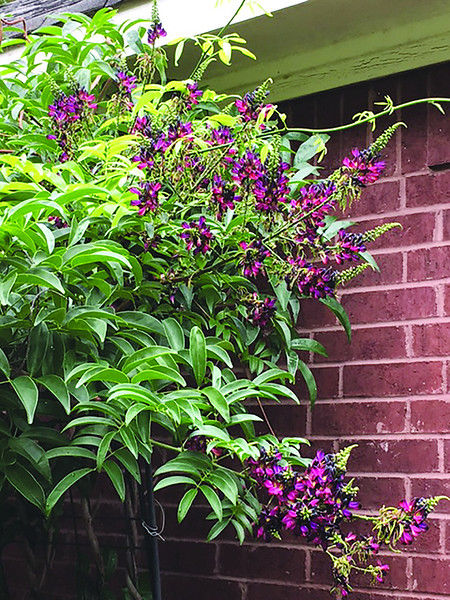Native wisteria is much more controllable than Chinese wisteria, and just as pretty
Published 8:24 pm Wednesday, August 23, 2017
Everyone is familiar with the rampant growing Chinese wisteria that we see booming everywhere – in bushes, up trees and devouring houses – in the spring. I have neighbors who have been battling it for more than 20 years. Besides being hard to control in your own garden, Chinese wisteria is an invasive problem when birds spread it into the woods. The vines quickly spread and begin to block light and steal water from our native trees, and create dense thickets that interfere with the growth of new saplings, and even pull large trees down with their heavy, woody stems.
There is, however an alternative. Our native wisteria (Wisteria frutescens) is much better behaved, but just as beautiful. It blooms later than the Chinese varieties (from late June through August). Its flowers are shorter, rounder and more compact (rather pine-cone shaped), but they have a delightful fragrance, almost like grapes. It can grow to 30 feet or more when trained to climb over an arbor, pergola or wall. It also can be trained into a small tree or standard. You will have to keep it pruned regularly to control its size and shape, but it is nowhere near the beast that Chinese wisteria is to keep tamed.
Native wisteria grows in zones 5 through 9 in the eastern half of the United States, and prefers slightly acidic, moderately fertile, moist, well-drained soils in full sun to partial shade. Choose growing sites wisely because plants dislike being transplanted. An application of fertilizer in early spring can help stimulate flowering. And, since their native habitat is along stream beds, the plant will benefit from irrigation during periods of drought.
Wisteria frutescens is not widely available in retail nurseries, but you can find the common cultivar “Amethyst Falls” via mail order. Stephen F. Austin State University also frequently has it at their plant sales in both the spring and the fall. Try it in your garden. You won’t be sorry.







